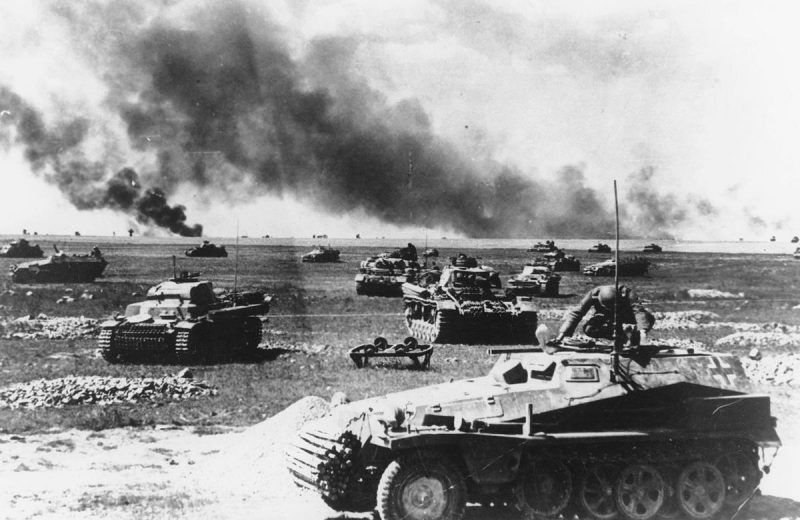
Nazi Alliance with Fascist Italy
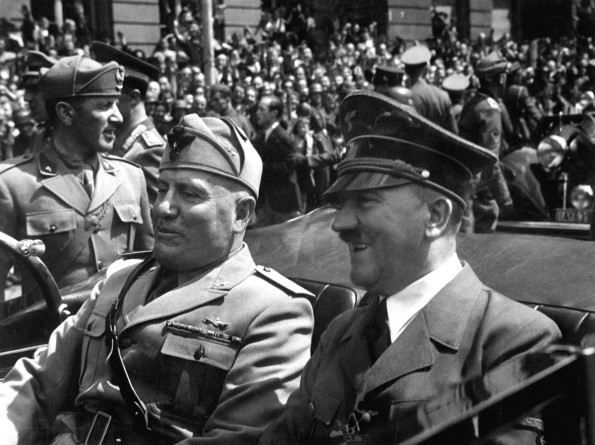
Getting the German forces involved in North Africa, a costly sideshow, was bad enough, but the forced German invasion of Greece could not have come at a worse time.
This loss of face for the Axis powers could not be accepted by Hitler, who ordered his generals to come up with a plan to secure his, now vulnerable, Southern flank. This meant that the Invasion of the Soviet Union, that was supposed to start in early spring, had to be postponed to June 22nd. As it turned out, this delay proved fatal.
Nazi invasion of Russia
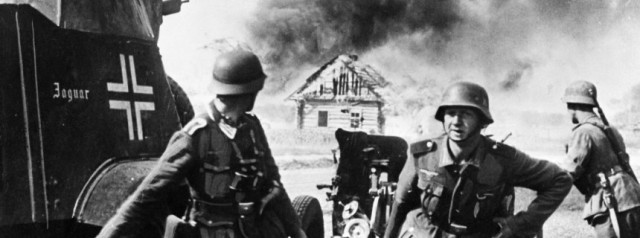
It even went so far that Poland was divided between the two and the part that the Soviets took in September 1939 has never been returned to Poland. It also gave the Soviets free reign in expanding its influence in the Eastern European countries and they lost no time in subjecting them to their rule.
The fact that the two sworn ideological enemies were willing to sign a non-aggression pact shook the world and allowed Nazi Germany the time to focus its attention on the West without having to fear a war on two fronts. Germany made the most of this freedom and, in quick succession, defeated Denmark, Norway, The Netherlands, Belgium, and France.
Only their planned invasion of the United Kingdom was thwarted by the Few of the Royal Air Force, the first setback for the Nazis. Deteriorating weather caused the invasion of Britain to be postponed indefinitely and Hitler once more turned to the East where, according to his book Mein Kampf, he believed the “Lebensraum” (living space) was which the Germans needed above all other things. However, this living space was occupied by the Russians which had now moved it’s western borders hundreds of kilometers closer to Nazi Germany as a result of the pact.
Unwilling to knock Britain out of the war first and thus faced with a war on two fronts, which Hitler had vowed to avoid at all costs, he invaded the Soviet Union. Hitler was confident the Soviet Union would be defeated in mere weeks, and he is quoted as having said: “We have only to kick in the door, and the whole rotten structure will come crashing down.” However most of the first month, if not six weeks, was spent fighting a way through countries now occupied by the Soviet Union. These countries might otherwise have been ensnared into the Axis camp, as some were later to join, had it not been for the pact.
The extra territory gave the Soviets the ability to trade space for time and, with the extra delay caused by the invasion of Greece, meant that Nazi Germany could not complete it’s conquest in during the remaining period of good weather. The autumn rains rolled in and turned most of Russia in a quagmire of mud which made all movement virtually impossible. Then winter arrived early and with extreme cold for which the Germans were not equipped.
Attack on Pearl Harbor
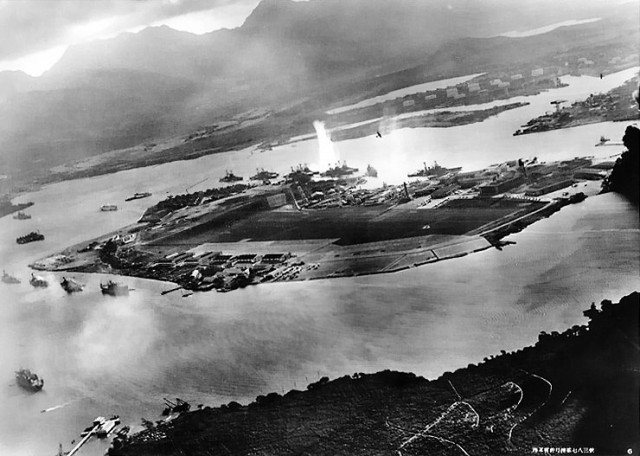
Having occupied vast portions of China and some countries in East Asia the next step was to expand it’s empire east into the Pacific ocean. Their eye was on the prosperous and natural resources that were under the control of the British and Dutch empires and the American governed Philippines. However attacking these would cause the United States to join the war on the side of the allies.
America, on the other hand, had kept an eye on Japanese conquests and brutality and, short of war, did what they could to restrict them. In July 1941 they embargoed the export of oil to Japan which then calculated that, without acquiring the oil in the Dutch East Indies, they only had enough fuel for two years. They reasoned that now there would be no other option than going to war.
Fate, or bad Japanese intelligence, intervened on the Allied side on December 7th 1941 and the vital American Aircraft carriers were not in port when the Japanese struck Pearl Harbor. This meant the Americans were able to fight back causing the Japanese Admiral in charge of the attack to say (supposedly) “I fear all we have done is to awaken a sleeping giant and fill him with a terrible resolve.”.
No alliance between the Nazis, Spain, and Turkey
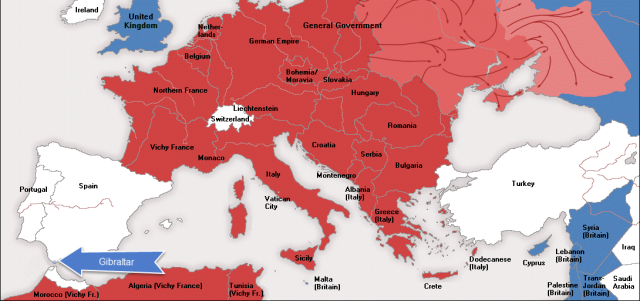
One look at the map of Europe will show the strategic importance of both Spain and Turkey. However these two, were two of the few countries on the European mainland that remained neutral during the second world war.
Even though Spain remained neutral during the First World War, it was expected they would come in on the side of the Axis after all the help Hitler had given General Franco in the Spanish Civil War. However, despite pleading and perhaps even begging, Franco remained adamant. He would not join the Axis and would not even allow the Germans to pass through his country (as the Swedes did).
Not being able to pass through Spain meant that Great Britain was secure in using it’s military base in Gibraltar. This not only effectively sealed off the entrance to the Mediterranean from Atlantic ocean for the German Navy, but it also gave the British a location from which it could support Malta and Egypt. Possession of Malta meant the British could interdict shipping from Italy to North Africa. Possession of Egypt meant it could stop the Axis from linking up with their forces fighting in the Caucasus (Soviet Union) and taking the much needed oil fields in the middle east.
Turkey fought on the side of the Axis in the First World War yet declined to join them in the Second. This, again, meant the Germans could not link up with their forces in the Caucasus making the capture of Egypt paramount. In February 1945, Turkey joined the Allies and declared war on, a virtually defeated Nazi Germany.

Δεν υπάρχουν σχόλια:
Δημοσίευση σχολίου